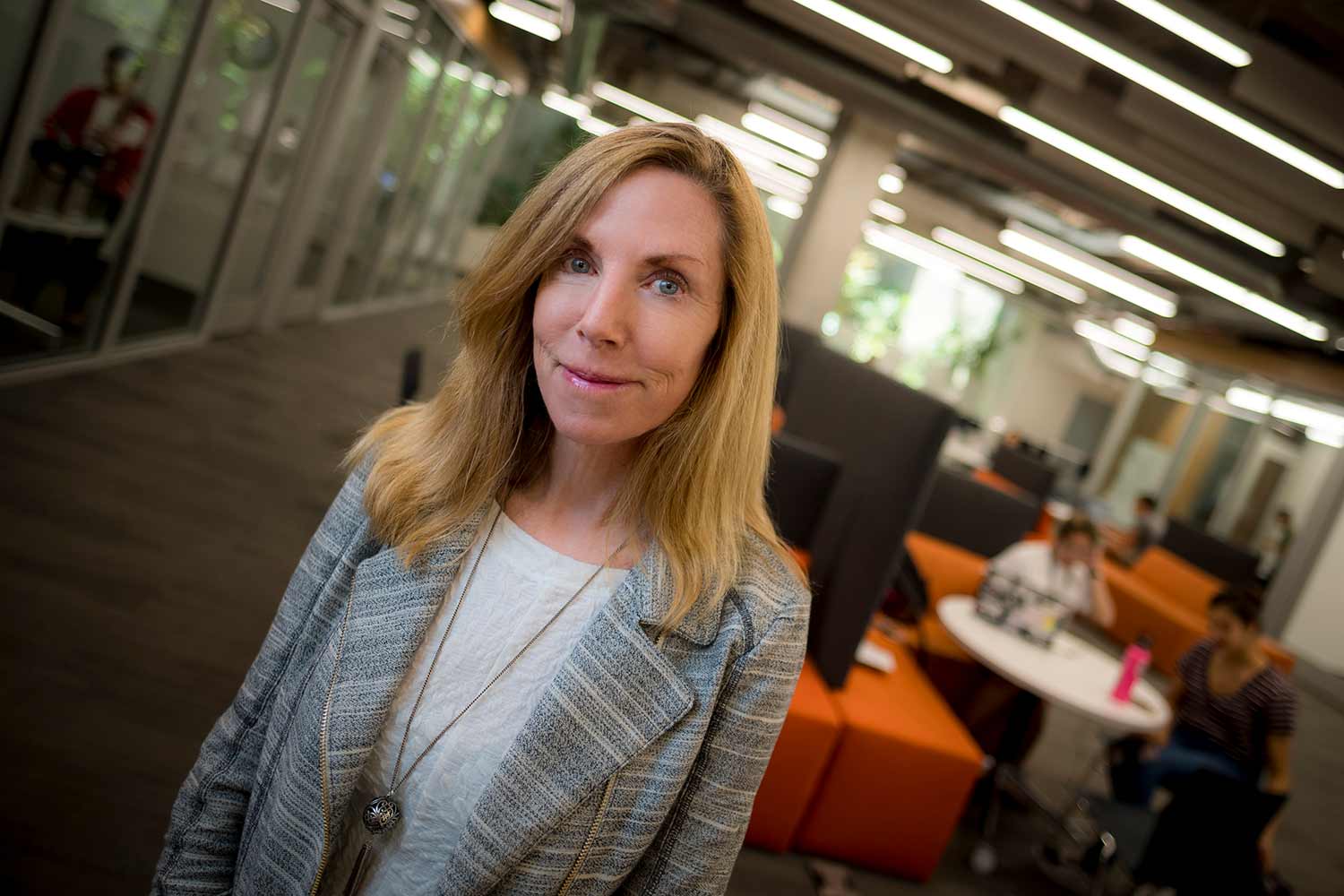
By:
- Judy Piercey
Published Date
By:
- Judy Piercey
Share This:

Photo by Erik Jepsen/UC San Diego Publications
The Evolution of Digital Learning at UC San Diego
A conversation with Karen Flammer
Technology, processes and online learning in general have significantly changed since UC San Diego launched the Office for Online and Technology Enhanced Education in 2015. That office has since transitioned into Digital Learning under the Teaching + Learning Commons, and we recently had an opportunity to talk with Director Karen Flammer to learn more.
Tell me about yourself—what is your background?
I call myself a UC San Diego ‘lifer’ … I was an undergraduate and graduate student here in physics, and my Ph.D. was in space physics. While working as an associate researcher in physics, I met astronaut and educator Sally Ride who was also a physicist here on campus. I co-founded a STEM education company with her, Sally Ride Science, in 2001. The company re-launched at UC San Diego in 2015 as Sally Ride Science @ UC San Diego and I served as the director of education. When the opportunity to lead Digital Learning came up, I thought the timing and the role were perfect for me. I became very passionate about online teaching and learning at Sally Ride Science and I had just helped the Supercomputer Center launch the big data specialization on Coursera. My current role is a natural extension of all my interests coming together.
Why are you excited about digital learning at UC San Diego?
This is where the world is going. Technology reduces barriers between where and when learning takes place. A lot has changed in recent years: not only is there interest from campus leadership for having a greater online presence to complement on-campus learning, but student needs and workforce demands are evolving. Technology offers flexibility and gives students more control over their own learning. It also increases access to our scholarship. There are many ways we can assist students in meeting their educational goals and prepare them for the workforce through online opportunities and alternative paths to credentials.
How will current and future digital learning efforts benefit students?
Some courses in high demand lend themselves to being online. Offering an online version of the course can greatly increase the number of students we serve. Student support is critical for successful online learning, and The Commons already offers online tutoring for campus courses. We’re also thinking about summer school. There are limited courses offered now for summer and limited access. Wouldn’t it be great if over the summer students could work, do an internship, go home and still take online courses toward their degree? This could potentially help with time to graduation.
What about faculty—how is digital learning helping instructors?
Many of our faculty who develop online courses use them to ‘flip’ their classrooms. The flip is that students watch videos and work on assignments during non-class time, then they come to class to ask the faculty questions and collaborate with their peers on problem-solving and discussion. When done correctly and when designed appropriately, it’s active learning at its best, and extremely beneficial to students. Research shows that most learning takes place when students are actively involved in the learning process.
Are MOOCs still relevant?
MOOCs are increasingly attracting high numbers of both audit and credential learners. What is changing is that MOOC platforms are now supporting what are called micro credentials—a set of courses that can be credit-bearing on-ramps towards full masters degrees. At UC San Diego, we launched two micro masters last year, one in data science and one in algorithms and data structures, developed by our computer science department. My hope is that our campus continues to innovate in this space and develop more online skill based training and alternative paths to credentials and degrees.
What is the same? There’s a growing interest from faculty across campus to be able to offer their scholarship, their knowledge, their expertise on a global level. Which is what MOOCs are best suited for. Our MOOC learners are spread all over the world. I’ve talked to faculty who say that people recognize them in a foreign airport, noting ‘I took your course online.’ That is why our digital learning team ensures that all UC San Diego-branded online courses are of the highest quality by supporting faculty in the design and implementation of these courses.
To learn more, visit UC San Diego’s Digital Learning.
Share This:
You May Also Like
Stay in the Know
Keep up with all the latest from UC San Diego. Subscribe to the newsletter today.


